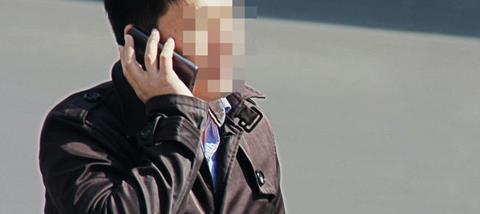
For our recent wedding anniversary, I gave my husband a small USB gadget. It arranges people’s online photo collections, using facial recognition technology, a form of artificial intelligence (AI).
The device can recognise and tag your face and your friends’ faces. It can recognise up to 100 people in a single image. Frankly, it’s been a godsend for our sprawling online albums, but there’s a downside to this technology.
China is one nation putting AI technologies to some worrying uses.
Keeping tabs
New AI technology offers ways of ‘keeping tabs’ on China's 90 million Christians… just like my husband and I keep tabs on our photo collections.
The case can be made that there are now more Christians in China (90 million) than members of the Chinese Communist Party and that’s a cause for concern for the Party. Christians appear to threaten President Xi Jinping’s government because they worship a higher power than him and the Party.
It’s far too large a number to put into detention camps – as has happened with the nation’s Muslim Uighur population, documented harrowingly on the recent BBC Panorama programme. Instead the authorities are amassing vast amounts of intimate personal data through manual searches, facial recognition cameras, and other means – all without any apparent legal redress.
They are using AI to do what they call ‘predictive policing’ – it sounds like something out of the film Minority Report where a specialised police department apprehends criminals based on foreknowledge of their activities provided by psychics. What’s happening in China is just as sinister.
Police are guided by a massive system of data collection and analysis. With it they can identify candidates for possible detention, flagging hundreds of thousands of people for investigation merely for using certain mobile phone apps.
Just as Amazon can decide that I’m the sort of person that would enjoy Ed Sheeran, the authorities can decide that you are the sort of person of whom they disapprove - and then take action.
There are plans to introduce a Social Credit System (SCS) in China, whereby authorities would rate everyone’s behaviour as citizens. Good citizens would be rewarded and bad ones punished. Your personal internet usage - where you visit online - will be one of the ways your behaviour could be ranked. This could affect your ability to receive benefits, a pension or even get a job.
Not one of us
China is not alone in seeing the potential in these new technologies. In India, biometric-based systems continue to grow, and under a second-term BJP-led government, an ultra-nationalistic ideology continues to spread.
India has introduced a new social security system in which every citizen is digitally identified by a 12-digit number. In tandem with this, the Government is due to introduce a national facial recognition system later in the year. They say it will do no more than facilitate what the police do already, things like catching criminals and locating missing children.
Indian Christians, however, have good reason to be concerned by the move. There were at least 447 verified incidents of violence and hate crimes against them in the last year. And these are happening in a climate of impunity for the perpetrators, due to police inaction or even collusion. They have little hope that this monitoring will be anything other than a tightening of the screws for non-Hindu minorities in the country, as has been seen in Assam, Kashmir and the introduction of the recent Citizenship Amendment Act - which refers directly to someone’s religion for the first time ever in the secular democracy.
How we choose to use AI in the years to come has become a hot ethical topic, but it is already changing things – for good and ill. For millions of Christians around the world, AI has become another potential means for others to oppress and even persecute them. They need our prayers as they navigate what could easily become an Orwellian nightmare.
Julia (B) is an analyst of Open Doors’ 2020 World Watch List, which ranks the most dangerous countries for Christians. You can learn more about the World Watch List, including where China and India rank, at the Open Doors UK and Ireland website.
Premier Christianity is committed to publishing a variety of opinion pieces from across the UK Church. The views expressed on our blog do not necessarily represent those of the publisher.





























